Photo: Brian To/FilmMagic
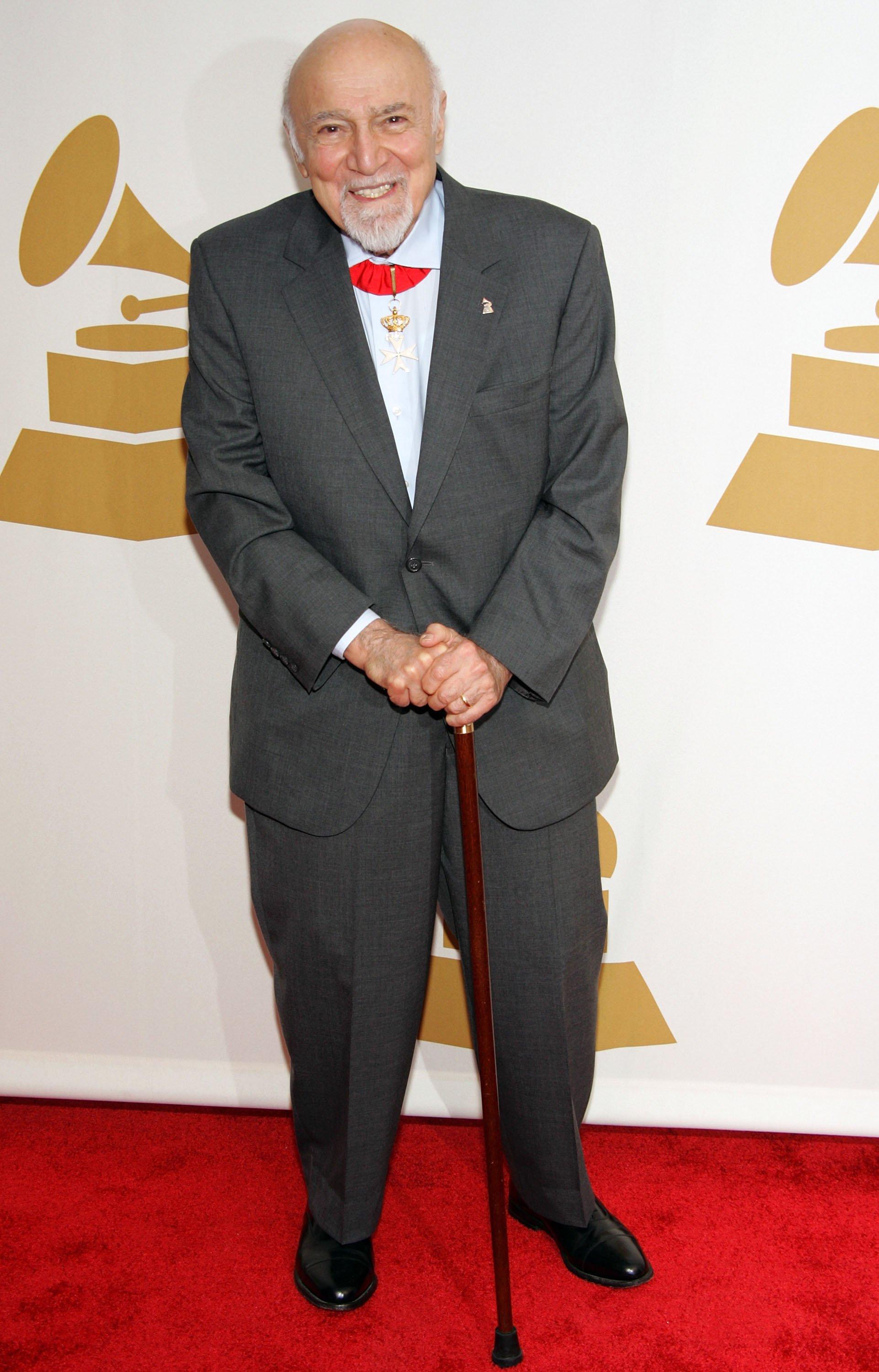
George Avakian
news
George Avakian: Producer, Talent Scout & Past Academy Chair Dies
Trustees Award recipient who played a role in the careers of Miles Davis, Dave Brubeck and Bob Newhart has died at age 98
Esteemed record producer, talent scout, manager, and past Recording Academy Chairman/President George Avakian has died, according to The New York Times. While no cause of death was given, the news was confirmed by his daughter, Anahid Avakian Gregg. He was 98 years old.
Born in Armavir, Russia, Avakian immigrated with his family to the United States as an infant. Growing up an avid jazz fan, he was already a published jazz critic by the time he was a sophomore at Yale University.
Avakian's career as a producer and talent scout began in 1939 when he convinced Decca Records to let him record prominent jazz musicians on the Chicago scene, which became a six-set of recordings titled Chicago Jazz. According to critics and historians, this is considered as the first jazz album.
Throughout his storied eight-decade-plus career with labels such as Decca, Columbia Records, Warner Bros. Records, RCA Records, and Sony Legacy, Avakian worked with the likes of Louis Armstrong, Miles Davis, Duke Ellington, Benny Goodman, Dave Brubeck, Sonny Rollins, Bob Newhart, Johnny Mathis, John Cage, and Ravi Shankar, among other music legends.
In the process, he helped cultivate influential recordings such as Armstrong's Louis Armstrong Plays W.C. Handy (1954), Ellington's Ellington At Newport (1956), Brubeck's Brubeck Plays Brubeck (1956), and Davis' Miles Ahead (1957), and Rollins' On The Outside (1966).
Also heralded for popularizing liner notes, he earned one career GRAMMY at the 39th GRAMMY Awards for Best Album Notes for The Complete Columbia Studio Recordings by Davis and Gil Evans. He was honored with the Recording Academy's Trustees Award in 2009 for his outstanding contributions to the music industry during his lifetime.
A great friend to the Academy, Avakian served as the seventh Chairman/President of the organization from 1966–1967.
"In a career spanning more than 40 years, George achieved several notable milestones including popularizing liner notes, helping establish long-playing albums as the industry standard, and developing the first jazz reissue series," said Recording Academy President/CEO Neil Portnow. "We have lost an integral member of our creative community. Our condolences go out to George's family, friends, and fellow collaborators."
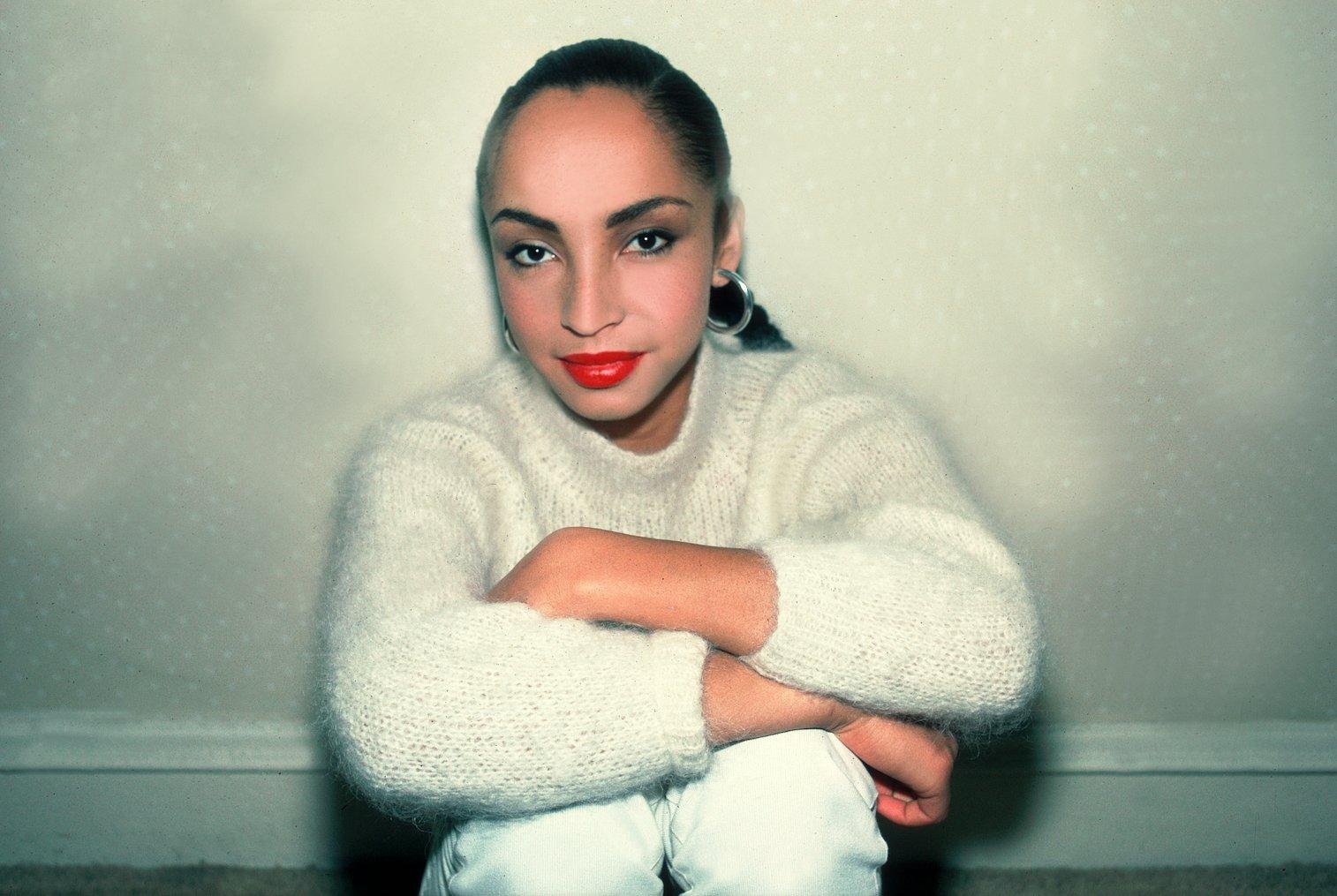
Photo: Paul Natkin/Getty Images
list
8 Ways Sade's 'Diamond Life' Album Redefined '80s Music & Influenced Culture
As Sade's masterpiece 'Diamond Life' turns 40, see how the group's debut pushed R&B forward and introduced them as beloved elusive stars.
"I only make records when I feel I have something to say," Sade Adu asserted in 2010 upon the highly anticipated release of Sade's GRAMMY-winning Soldier of Love album, which arrived after a 10-year hiatus. "I'm not interested in releasing music just for the sake of selling something. Sade is not a brand."
This lifetime of dedication toward achieving musical excellence helped Sade — vocalist Adu, bassist Paul S. Denman, keyboardist Andrew Hale, and guitarist/saxophonist Stuart Matthewman — gain prominence in the mid-80s, also garnering enormous respect from fans, critics, and peers alike. Formed in 1982, the English band is one of the few acts that can still be met with a hungry audience after disappearing from the spotlight for multiple years.
In an industry where churning out a new body of work is expected every couple of years, the four meticulous members of Sade move on their own time, putting out a mere six studio albums since 1984. Every project becomes more exquisite than the last, but it all began 40 years ago with Sade's illustrious debut album, Diamond Life. Ubiquitous hits like "Smooth Operator" and "Your Love Is King" appealed to listeners young and old — offering a unique blend of R&B, jazz, soul, funk, and pop that birthed a new sound and forced the industry to take notes from the jump.
As Sade's Diamond Life celebrates a milestone anniversary, here's a look at how the album helped push R&B forward, and why it's just as relevant today.
It Helped Set Off The "Quiet Storm" Craze
By mid-1984, Michael Jackson, was riding high off of winning the most GRAMMYs in a single night (including Album Of The Year) for his blockbuster album Thriller, Madonna celebrated her first top 10 hit with "Borderline," and Prince's Purple Rain was just days away from its theatrical release. Duran Duran, Culture Club, Billy Idol, and the Police were mainstays, while "blue-eyed soul" in particular had also hit an all-time high thanks to Hall and Oates, Wham, Simply Red, and others. What's more, many Black artists like Lionel Richie and Whitney Houston opted for more of a pop sound to appeal to broader audiences during MTV's golden era.
Diamond Life was refreshing at the time, as it fully embraced soul and R&B. The album offered a chic sophistication amid the synth-heavy pop and rock music that ruled the charts.
Singles like "Your Love Is King" and "Smooth Operator" introduced jazz elements into mainstream radio. In turn, Sade helped usher in the "quiet storm" genre — R&B music at its core, with strong undertones of jazz for an ultra-smooth sound. Sade and Diamond Life also laid some of the groundwork for neo-soul, which saw a surge in the '90s à la Lauryn Hill, Maxwell, and Erykah Badu.
It Made GRAMMY History
In the 65-year history of the GRAMMYs, a small number of Nigerian artists, including Burna Boy and Tems, have won a golden gramophone. In 1986, a then 27-year-old Sade Adu made history as the first-ever Nigerian-born artist to win a GRAMMY when she and her band was crowned Best New Artist at the 29th GRAMMYs. Still, Billy Crystal and Whoopi Goldberg had to accept the award on Sade's behalf — signaling Adu's elusive nature as she rarely attends industry events or grants interviews.
Since then, Sade has gone on to earn three more GRAMMYs, including Best Pop Vocal Album in 2001 for their fifth studio album, Lovers Rock. The win signified their staying power in the new millennium.
It Birthed The Band's Signature Song…
While Diamond Life spawned timeless hits like "Your Love Is King" and "Hang On to Your Love," "Smooth Operator" became the album's highest-charting single — and remains the most iconic song in their catalog. The seductive track about a cunning two-timer propelled the band into international stardom: "Smooth Operator" skyrocketed to No. 5 on the Billboard Hot 100 and hit No. 1 on the Adult Contemporary chart.
Even non-Sade fans can identify "Smooth Operator" in an instant, from Adu's unmistakable vocals to that now-iconic instrumental saxophone solo. As of press time, it boasts over 400 million Spotify streams alone, and has remained a set list staple across every one of Sade's tours.
…And It Houses Underrated Gems
"Smooth Operator" may be Sade's commercial classic, but deep cuts like "Frankie's First Affair," "Cherry Pie," and "I Will Be Your Friend" are fan favorites that embody the band's heart and soul.
"Frankie's First Affair" offers a surprisingly enchanting take on infidelity: "Frankie, didn't I tell you, you've got the world in the palm of your hand/ Frankie, didn't I tell you they're running at your command." And, it's impossible to resist the funky groove that carries standout track "Cherry Pie," which served as a catalyst for some of Sade's later, more dance-oriented hits, including "Never As Good As the First Time" and "Paradise." Some of Sade's most poignant statements about lost love, including "Somebody Already Broke My Heart" from 2000's Lovers Rock, can be traced back to "Cherry Pie."
Diamond Life's penultimate song, "I Will Be Your Friend," offers both solace and companionship — another recurring theme throughout Sade's music, from 1988's "Keep Looking" to 2010's "In Another Time."
It Was The Best-Selling Debut Album By A British Female Singer For More Than Two Decades
Sade has sold tens of millions of albums worldwide, but Diamond Life remains the band's most commercially successful LP with over 7 million copies sold. Most of Sade's other platinum-selling LPs, including Diamond Life's follow-up, 1985's Promise, boast sales between four and six million copies.
The 7 million feat helped Sade set the record for best-selling debut album by a British female singer. She held the title for nearly 25 years until Leona Lewis' 2008 album Spirit, which has sold over 8 million copies globally.
It Introduced Sade Adu As A Style Icon
When we first met Adu, her signature aesthetic consisted of a long, slicked-back ponytail, red lip, and gold hoops. Sade's impeccable style is front and center in early videos like "When Am I Going to Make a Living," in which she sports an all-white ensemble paired with a pale gray, ankle-length trench coat and loafers.
Adu rocked the model off-duty style long before it became a trend. Her oversized blazers, classic trousers, and head-to-toe denim looks were as effortless as they were chic and runway-ready — proving that less was more amid the decade of excess.
"It's now so acceptable to be wacky and have hair that goes in 101 directions and has several colours, and trendy, wacky clothes have become so acceptable that they're… conventional," Adu, who briefly worked as a fashion designer and model before pursuing music, told Rolling Stone in 1985. "I don't like looking outrageous. I don't want to look like everybody else."
It Shined A Light On Larger Societal Issues
While most of Diamond Life leans into love's ebbs and flows, a handful of tunes deal with financial strife coupled with a dose of optimism, as evidenced by "When Am I Going to Make a Living" and "Sally." The latter song characterizes the Salvation Army as a young charitable woman: "So put your hands together for Sally/ She's the one who cared for him/ Put your hands together for Sally/ She was there when his luck was running thin."
Meanwhile, Adu, a then-starving artist, scribbled down portions of "When Am I Going to Make a Living" on the back of her cleaning ticket. The soul-stirring "We are hungry, but we won't give in" refrain emerges as a powerful mantra in the face of adversity and still holds relevance in 2024. Similar themes appear throughout Sade's later work, including unemployment ("Feel No Pain"), unwanted pregnancy ("Tar Baby"), survival ("Jezebel"), prejudice ("Immigrant"), and injustice ("Slave Song").
Diamond Life closer "Why Can't We Live Together" is a well-done cover of Timmy Thomas' 1972 hit about the staggering Vietnam War deaths. The band wisely doesn't veer too far from the original recording, but Adu's distinctive contralto voice brings a haunting quality that's reminiscent of Billie Holiday.
It Ignited The Public's Ongoing Fascination With Sade Adu
Since 1984, Sade has only released six studio albums, and a remarkable 14 years have passed since the group's last offering, 2010's Soldier of Love. Ironically, that scarcity — both in terms of music and access to the artist — has actually added to Adu's appeal. Case in point: Sade's sold-out Soldier of Love Tour grossed over $50 million in 2011, and the band still brings in close to 14 million monthly listeners on Spotify.
Adu's striking beauty, mysterious persona, and knack for letting her music do all the talking has earned the admiration of her peers across genres and generations. Everyone from Beyoncé to Kanye West to Snoop Dogg have sung her praises. Drake even has two portrait-style tattoos of the singer on his torso. Prince reportedly described 1988's "Love Is Stronger Than Pride" as "one of the most beautiful songs ever." Metalheads Chino Moreno of the Deftones and Greg Puciato of the Dillinger Escape Plan have also cited Adu as inspiration — showing that her influence runs far and wide.
In 2022, reports circulated that Sade was recording new music at Miraval Studios in France. But upon Diamond Life's 40th anniversary, "Flower of the Universe" and "The Big Unknown" from the respective soundtracks to 2018 films A Wrinkle in Time and Widows stand as Sade's latest releases.
Whether fans get new music anytime soon remains to be seen, but the impressive repertoire of Adu, Denman, Hale, and Matthewman is one that aims to be truth-seeking and inspiring while exploring life's peaks and valleys. Diamond Life in particular holds up as one of the purest representations of the group's creative legacy, both commercially and musically.
From quadruple platinum status to resonating with several generations, Diamond Life will forever stand as a remarkable debut — one that continues to influence music in a multitude of ways.
Latest News & Exclusive Videos
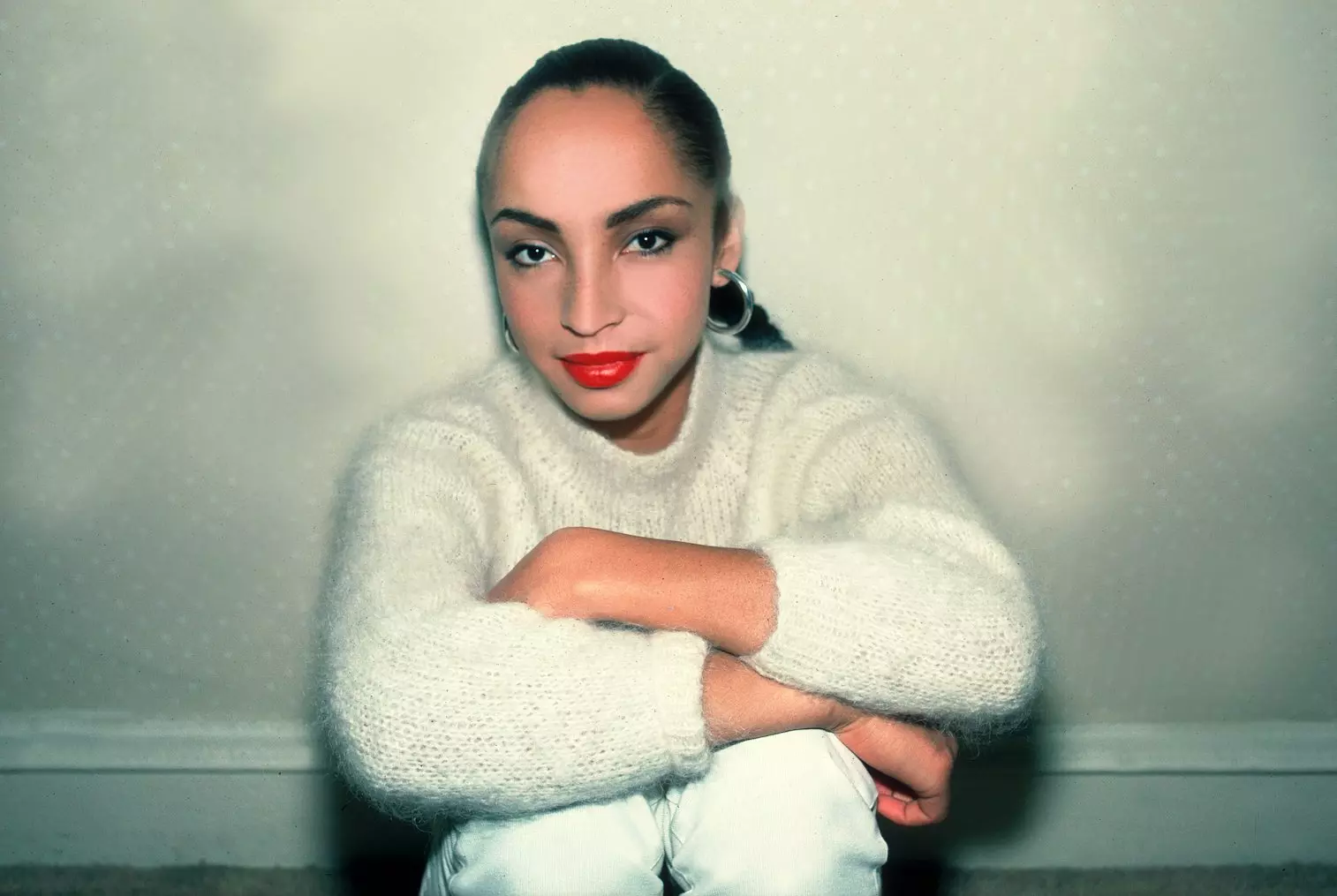
8 Ways Sade's 'Diamond Life' Album Redefined '80s Music & Influenced Culture

Katelyn Tarver's "Everyday Is A Winding Road"

On New Album 'Big Ideas,' Remi Wolf Delivers Musical Poetry In Motion
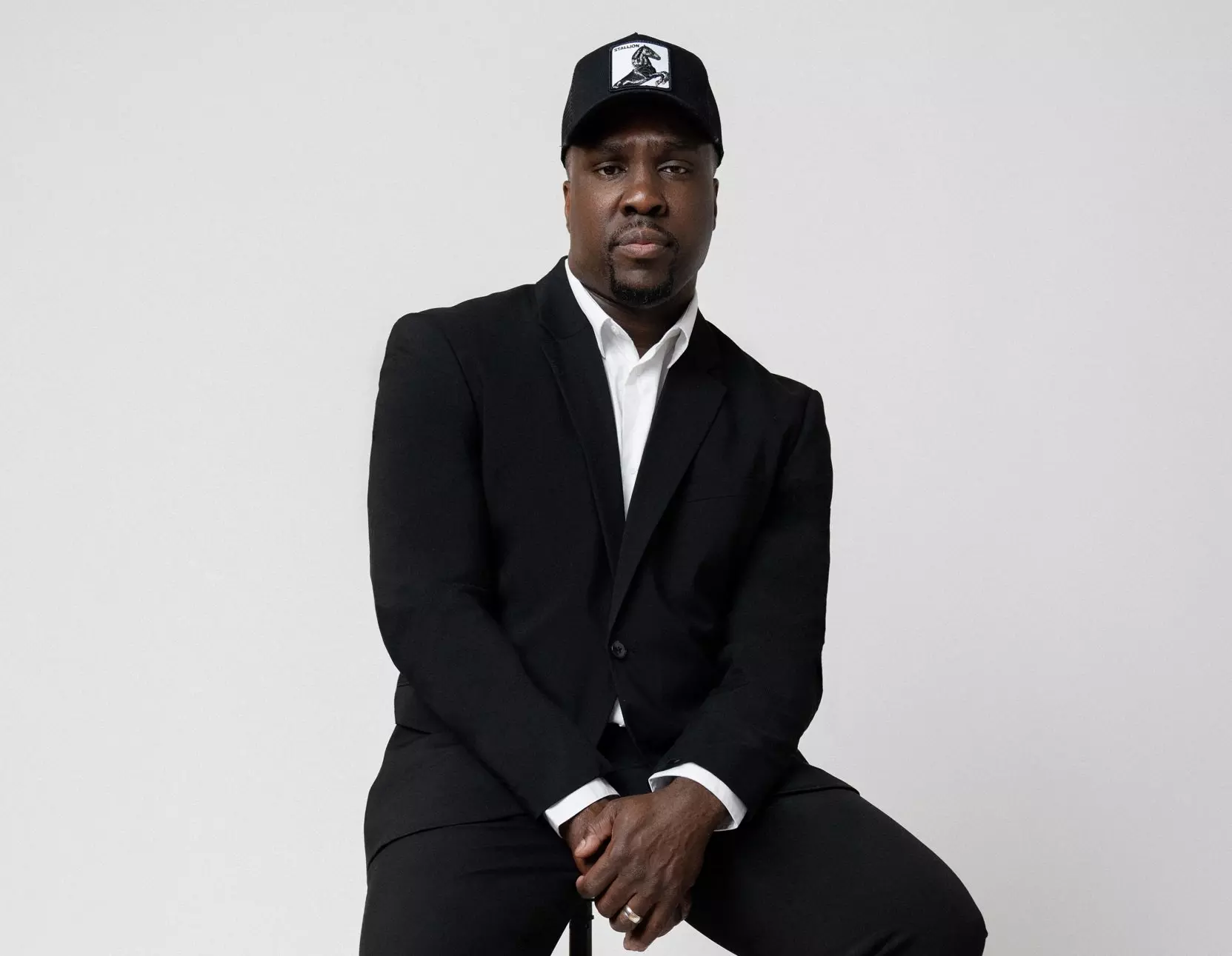
Meet Derrick Hodge, The Composer Orchestrating Hip-Hop's Symphony

Behind Ryan Tedder's Hits: Stories From The Studio With OneRepublic, Beyoncé, Taylor Swift & More
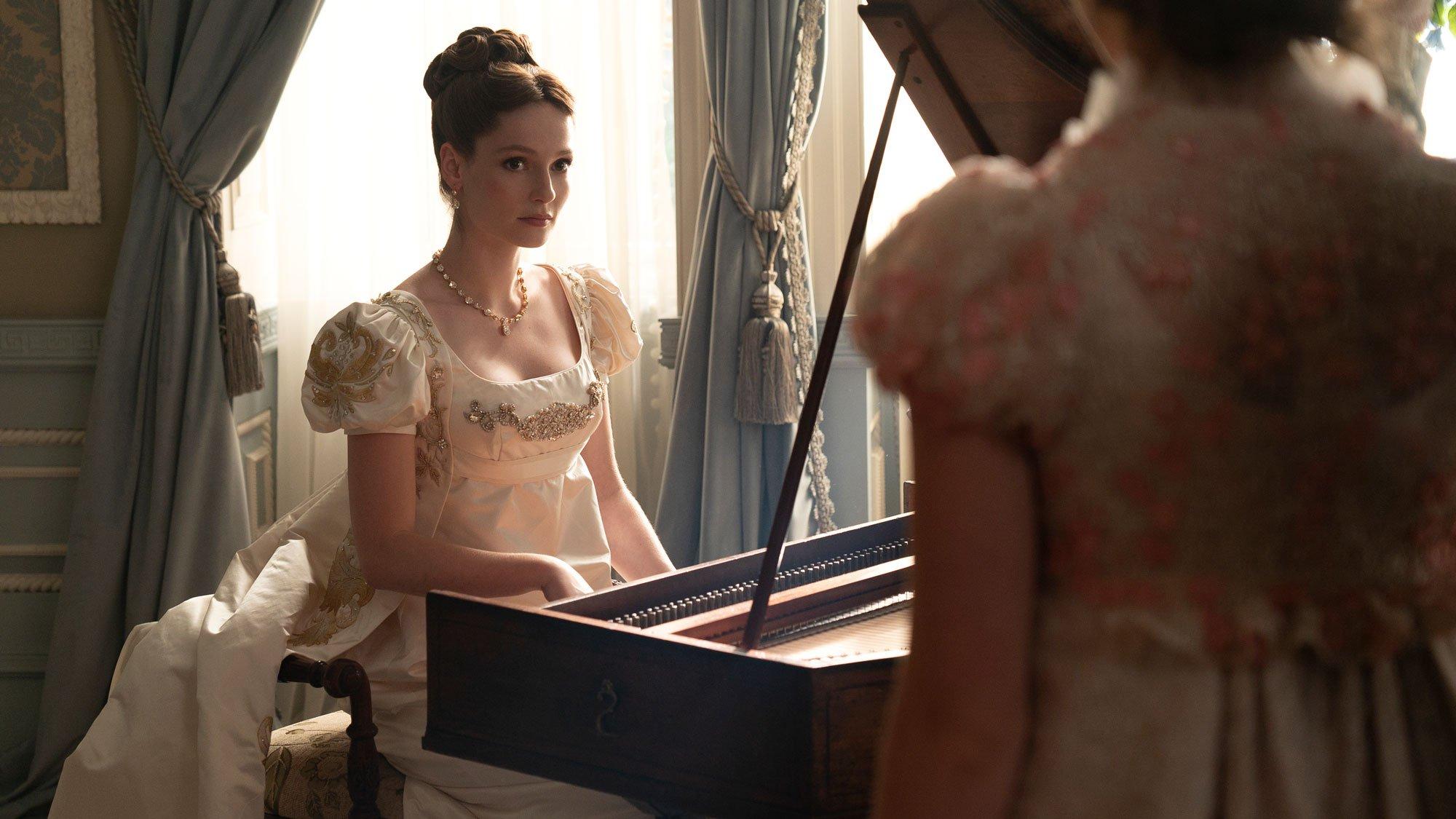
Photo: Netflix
feature
"Bridgerton" Composer Kris Bowers & Vitamin String Quartet Continue To Make Classical Music Pop For Season 3
The Netflix show returns for its third season on May 16. Composer Kris Bowers, alongside the Vitamin String Quartet and other artists, masterfully reimagines modern pop with a classical twist, including a Taylor Swift hit.
No one is arguing that “Bridgerton” is realistic or even particularly historically accurate — in fact, leaning into anachronisms is the point. Entering its third season, which premieres on May 16, the pulpy Netflix show based on a series of romance novels by Julia Quinn — often classified as “bodice rippers” — mixes modern life ideas with Regency-era social rules.
From Lady Whistledown's tantalizing gossip columns to the complex romances of the Bridgerton siblings, the series grips viewers with its blend of historical drama and contemporary flair. One key note in that chord is classical music. Instead of using current tracks like some historical-contemporary-hybrids (most famously “A Knight’s Tale" in 2001), “Bridgerton” has mastered the art of the classical cover.
Paired with original compositions by Kris Bowers, an Oscar winner and GRAMMY nominee — including one for Best Score Soundtrack For Visual Media for "Bridgerton" — the tone of the show is that of a heightened, classic world. Bowers, along with music supervisor Justin Kamps collaborates with the Vitamin String Quartet and other artists to create a full circle sonic landscape. They make the classical music in “Bridgerton” pop by re-recording, rearranging, and reimagining contemporary pop songs as classic pieces.
Over three seasons, as well as with the spin off, “Queen Charlotte,” the team has included a mix of the newest songs as well as nostalgic favorites. This season features GAYLE’s “abcdefu,” which was released in 2022 as well as a cover of Pitbull, Ne-Yo, and Afrojack’s “Give Me Everything,” which was released in 2011, which can appease the full gamut of millennial and Gen Z viewers.
Regency traditions
The Regency period in which the show is based, spanned from 1811 to 1820, and was known as an era of elegance and refinement in British history. In the first chunk of the 1800s, pop music included pieces by Beethoven, Liszt, Haydn, and Mendlesson (famous for the “Wedding March”). Waltzes were all the rage, and this “new” music was considered much more emotional and passionate than previous offerings. The romance of being swept away in a dance increased the thrill, and string quartets were highly popular.
As seen throughout the series (and much like today), society placed a significant emphasis on social gatherings and music played a central role in these events. Balls, soirées, and intimate musical evenings were common, the perfect backdrop for orchestrating romance.
In “Bridgerton," the show's modern portrayal of the Regency period occasionally features or references music from the time period, such as Vivaldi’s “The Four Seasons,” which was written a century before the events in the show but was and is still a popular piece of classical music. The show frequently uses arrangements of classical songs in a slightly modern way, but most often, it underscores scenes with either classically arranged covers of pop songs or original music by Bowers.
Contemporary music covers
Choosing between a cover or original music is a nuanced decision for the music team. The music team considers “whether or not, there's something that can, lyrically, even though we don't hear lyrics, speak to a moment really well,” said Bowers. Absent a cover by an outside band, Bowers arranges pop hits to suit the tone of the scene. He said, “when you're saying something with a song, you're making commentary on what's happening.”
When they do outsource tracks, more often than not, these covers come from Los Angeles-based Vitamin String Quartet. VSQ is the new Mendlesson in that they have been the predominant wedding-march artist for nearly a decade, known for producing string renditions of highly eclectic mix of artists including Cardi B, Lana Del Rey, Björk, and Sigur Rós.
They contributed four covers in season one, including Billie Elish's “bad guy” and Ariana Grande's “Thank U, Next,” about which Leo Flynn, VSQ Brand Manager at CMH Label Group said, “Talk about a great track changing the temperature of a room.” In season two, VSQ’s cover of Robyn's “Dancing on My Own” played under a dance scene.
When we spoke to James Curtiss, Director of A&R at CMH, the song placements for season three were still a mystery. Curtiss shared, “When we finished that Taylor [Swift] record, we sent it right over to the people at ‘Bridgerton.’”
[Spoiler alert:] Since then, we have learned Swift's “Snow on the Beach” will be featured in season three. This isn't the first time Swift's music has been featured in the show: Duomo’s cover of “Wildest Dreams” played under the honeymoon scenes in season one.
Composer Bowers added his favorite cover of the season is in episode eight, the finale, but what title that is will be a surprise. The surprise of an “unexpected cover” as Bowers calls it is that when you “hear a song that you know, and have this strong indelible connection with it that is represented in this style that you typically don't feel like is for you. People get excited by having this music that they really love be elevated to this other level.” He said the familiarity makes “you feel connected to this time period, these characters, and these people in a different way.”
Flynn said, “There’s something about the past that’s inherently romantic,” and the use of VSQ songs “unites something from the past with what’s going on now.” Because classical music “feels very idealized and formal,” he said, “there’s all this history and mystique built into it.”
Flynn also mentioned that “Bridgerton” fuses past and present on a “major storytelling scale” between the historically-inspired stories themselves, the “visual feast” of the show, and the music. Curtiss added that the “romantic nature of the string quartet” juxtaposed with pop songs helps viewers tie the feeling of going to a bar or club to the experience of hearing “the popular bangers of the day,” as he called Beethoven et al., at a ball in the Regency era.
Original compositions
When the music needs to set a specific tone without taking the audience out of the action to try and name that tune, “Bridgerton” often uses original compositions by Bowers. Bowers said, “Looking at pop music for those things like rhythm and tempo and all that stuff also helps in moments where we want to have the score feel a little bit more modern and not as traditional.” He continued, “I’ll put something in the violas and the celli that have this kind of guitar and bass feeling to them even though we’re looking at it orchestrationally from a classical perspective.” He explained that “borrowing the rhythms or the way that parts interlock from pop music” makes it feel like a modern classical sound.
Each character and couple has their own theme. Bowers explained that it was enjoyable to create themes that could fit both heartbreaking and celebratory moments. “The melodies are still the same even if the harmonic tone is changed,” he said.
Instrumental Pop In Visual Media
The “Bridgerton” style of using instrumentalized versions of pop songs is not unique. Famously, “Promising Young Woman” used a haunting version of Britney Spears’ “Toxic,” adapted by Anthony Willis, and “Westworld’s” Ramin Djawadi used adaptations of Radiohead among others. “Wednesday” featured a stirring string version of the Rolling Stones’ “Paint it Black.” The popularity of Vitamin String Quartet and other classical cover bands has not waned and, if anything, is becoming more of a mainstream staple.
As season three approaches, the unveiling of the time-spanning, romantic soundtrack is highly anticipated. Four episodes air May 16 and the second half of the season airs June 13, with original compositions by Kris Bowers and additional music by various artists, including Vitamin String Quartet, who will be taking over Pandora’s Classical Goes Pop in anticipation of their fall, “Bridgerton”-music-filled tour.
Overall, to find the tone of the whole series, Bowers said, “Season three actually has a lot more lightness to it. (Showrunners) Shonda (Rhimes) and Jess (Brownell) really want to have a lot of fun this season so there's a little bit more of a playful, youthful quality to the music.” Whatever tunes make it into the season, they are sure to be a feast for the ears.
Meet Usher Collaborator Pheelz, The Nigerian Producer & Singer Who Wants You To 'Pheelz Good’
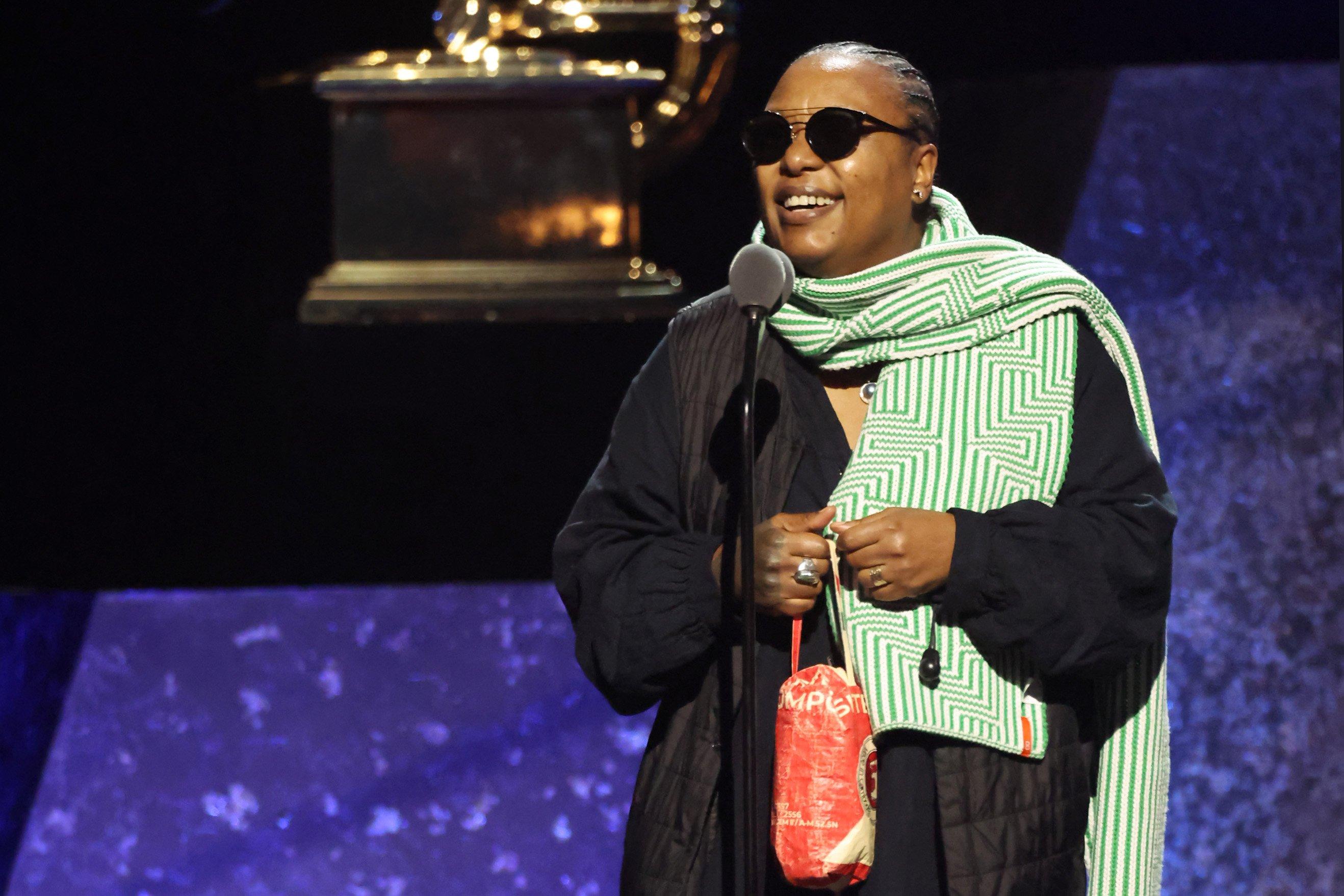
Photo: Amy Sussman/Getty Images
news
Meshell Ndegeocello Wins The First-Ever GRAMMY For Best Alternative Jazz Album At The 2024 GRAMMYs
Meshell Ndegeocello won the first-ever GRAMMY for Best Alternative Jazz Album. Ndegeocello bested Arooj Aftab, Vijay Iyer and Shahzad Ismaily; Louis Cole; Kurt Elling, Charlie Hunter and SuperBlue; and Cory Henry.
Meshell Ndegeocello won the first-ever GRAMMY for Best Alternative Jazz Album at the 2024 GRAMMYs.
The album bested Arooj Aftab, Vijay Iyer and Shahzad Ismaily's Love in Exile; Louis Cole's Quality Over Opinion; Kurt Elling, Charlie Hunter and SuperBlue's SuperBlue: The Iridescent Spree; and Cory Henry's Live at the Piano.
In her acceptance speech, the two-time GRAMMY winner and 12-time nominee thanked Don Was, the president of Blue Note Records, as well as other colleagues and loved ones — including her two sons. “I hope I haven’t forgotten anybody,” Ndegeocello graciously said at the end, and invoked an elder of the music: “Oliver Lake, this is for you.”
Keep watching this space for more information about the 2024 GRAMMYs!
A Year In Alternative Jazz: 10 Albums To Understand The New GRAMMYs Category
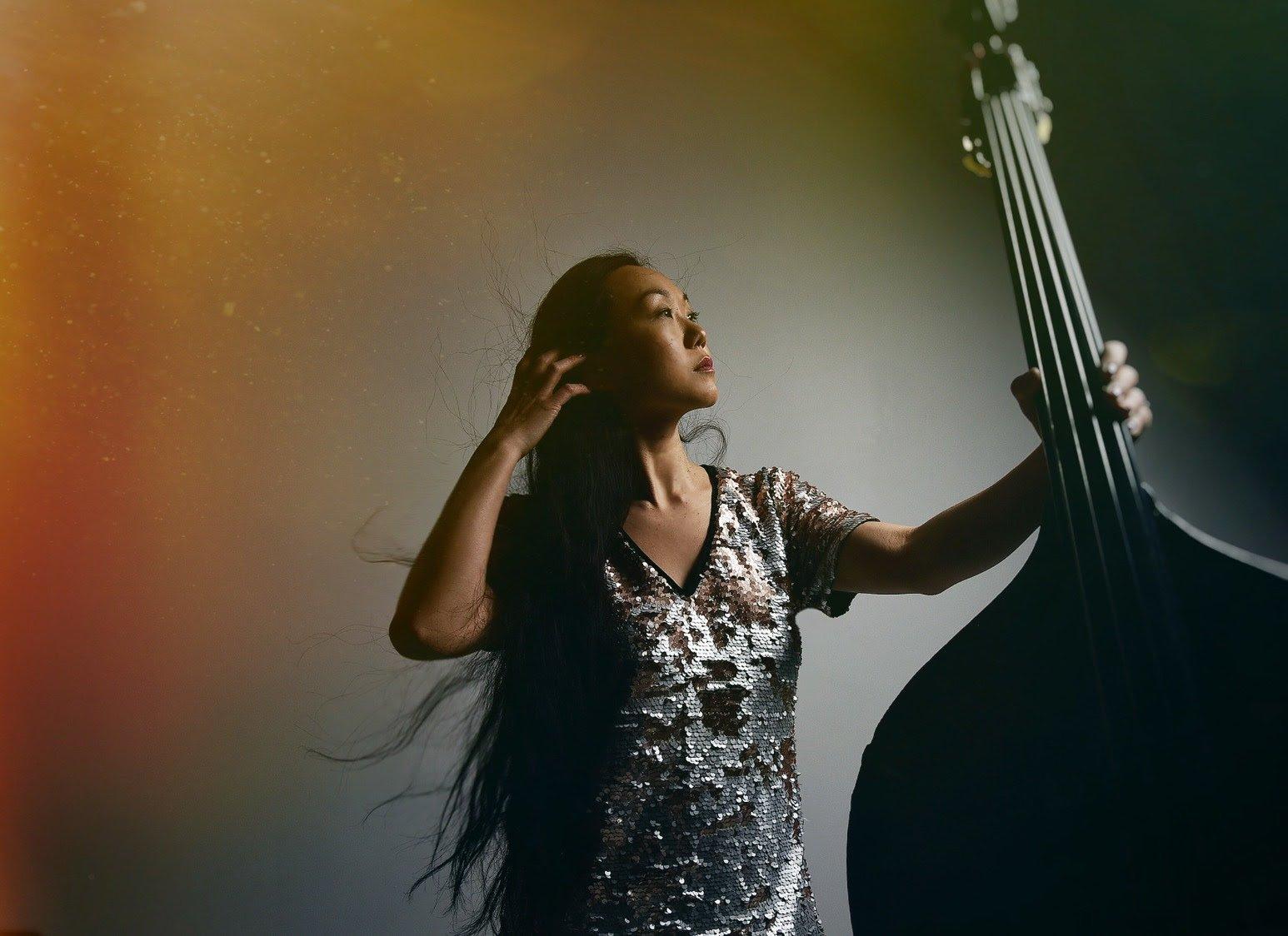
Photo: Shervin Lainez
list
A Year In Alternative Jazz: 10 Albums To Understand The New GRAMMYs Category
"Alternative jazz" may not be a bandied-about term in the jazz world, but it's a helpful lens to view the "genre-blending, envelope-pushing hybrid" that defines a new category at the 2024 GRAMMYs. Here are 10 albums from 2023 that rise to this definition.
What, exactly, is "alternative jazz"? After that new category was announced ahead of the 2024 GRAMMYs nominations, inquiring minds wanted to know. The "alternative" descriptor is usually tied to rock, pop or dance — not typically jazz, which gets qualifiers like "out" or "avant-garde."
However, the introduction of the Best Alternative Jazz Album category does shoehorn anything into the lexicon. Rather, it commensurately clarifies and expands the boundaries of this global artform.
According to the Recording Academy, alternative jazz "may be defined as a genre-blending, envelope-pushing hybrid that mixes jazz (improvisation, interaction, harmony, rhythm, arrangements, composition, and style) with other genres… it may also include the contemporary production techniques/instrumentation associated with other genres."
And the 2024 GRAMMY nominees for Best Alternative Jazz Album live up to this dictum: Arooj Aftab, Vijay Iyer and Shahzad Ismaily's Love in Exile; Louis Cole's Quality Over Opinion; Kurt Elling, Charlie Hunter and SuperBlue's SuperBlue: The Iridescent Spree; Cory Henry's Live at the Piano; and Meshell Ndegeocello's The Omnichord Real Book.
Sure, these were the standard bearers of alternative jazz over the past year and change — as far as Recording Academy Membership is concerned. But these are only five albums; they amount to a cross section. With that in mind, read on for 10 additional albums from 2023 that fall under the umbrella of alternative jazz.
Allison Miller - Rivers in Our Veins
The supple and innovative drummer and composer Allison Miller often works in highly cerebral, conceptual spaces. After all, her last suite, Rivers in Our Veins, involves a jazz band, three dancers and video projections.
Therein, Miller chose one of the most universal themes out there: how rivers shape our lives and communities, and how we must act as their stewards. Featuring violinist Jenny Scheinman, trumpeter Jason Palmer, clarinetist Ben Goldberg, keyboardist and accordionist Carmen Staff, and upright bassist Todd Sickafoose — Rivers in Our Veins homes in on the James, Delaware, Potomac, Hudson, and Susquehanna.
And just as these eastern U.S. waterways serve all walks of life, Rivers in Our Veins defies category. And it also blurs two crucial aspects of Miller's life and career.
"I get to marry my environmentalism and my activism with music," she told District Fray. "And it's still growing!
M.E.B. - That You Not Dare To Forget
The Prince of Darkness may have slipped away 32 years ago, but he's felt eerily omnipresent in the evolution of this music ever since.
In M.E.B. or "Miles Electric Band," an ensemble of Davis alumni and disciples underscore his unyielding spirit with That You Not Dare to Forget. The lineup is staggering: bassists Ron Carter, Marcus Miller, and Stanley Clarke; saxophonist Donald Harrison, guitarist John Scofield, a host of others.
How does That You Not Dare To Forget satisfy the definition of alternative jazz? Because like Davis' abstracted masterpieces, like Bitches Brew, On the Corner and the like, the music is amoebic, resistant to pigeonholing.
Indeed, tunes like "Hail to the Real Chief" and "Bitches are Back" function as scratchy funk or psychedelic soul as much as they do the J-word, which Davis hated vociferously.
And above all, they're idiosyncratic to the bone — just as the big guy was, every second of his life and career.
Art Ensemble of Chicago - Sixth Decade - from Paris to Paris
The nuances and multiplicities of the Art Ensemble of Chicago cannot be summed up in a blurb: that's where books like Message to Our Folks and A Power Stronger Than Itself — about the AACM — come in.
But if you want an entryway into this bastion of creative improvisational music — that, unlike The Art Ensemble of Chicago and Associated Ensembles boxed set, isn't 18-plus hours long — Sixth Decade - from Paris to Paris will do in a pinch.
Recorded just a month before the pandemic struck, The Sixth Decade is a captivating looking-glass into this collective as it stands, with fearless co-founder Roscoe Mitchell flanked by younger leading lights, like Nicole Mitchell and Moor Mother.
Potent and urgent, engaging the heart as much as the cerebrum, this music sees the Art Ensemble still charting their course into the outer reaches. Here's to their next six decades.
Theo Croker - By The Way
By The Way may not be an album proper, but it's still an exemplar of alternative jazz.
The five-track EP finds outstanding trumpeter, vocalist, producer, and composer Croker revisiting tunes from across his discography, with UK singer/songwriter Ego Ella May weaving the proceedings with her supple, enveloping vocals.
Compositions like "Slowly" and "If I Could I Would" seem to hang just outside the reaches of jazz; it pulls on strings of neo soul and silky, progressive R&B.
Even the music video for "Slowly" is quietly innovative: in AI's breakthrough year, machine learning made beautifully, cosmically odd visuals for that percolating highlight.
Michael Blake - Dance of the Mystic Bliss
Even a cursory examination of Dance of the Mystic Bliss reveals it to be Pandora's box.
First off: revered tenor and soprano saxophonist Michael Blake's CV runs deep, from his lasting impression in New York's downtown scene to his legacy in John Lurie's Lounge Lizards.
And his new album is steeped in the long and storied history of jazz and strings, as well as Brazilian music and the sting of grief — Blake's mother's 2018 passing looms heavy in tunes like "Merle the Pearl."
"Sure, for me, it's all about my mom, and there will be some things that were triggered. But when you're listening to it, you're going to have a completely different experience," Blake told LondonJazz in 2023.
"That's what I love about instrumental music," he continued. "That's what's so great about how jazz can transcend to this unbelievable spiritual level." Indeed, Dance of the Mystic Bliss can be communed with, with or without context, going in familiar or cold.
And that tends to be the instrumental music that truly lasts — the kind that gives you a cornucopia of references and sensations, either way.
Dinner Party - Enigmatic Society
Dinner Party's self-titled debut EP, from 2020 — and its attendant remix that year, Dinner Party: Dessert — introduced a mightily enticing supergroup to the world: Kamasi Washington, Robert Glasper, Terrace Martin, and 9th Wonder.
While the magnitude of talent there is unquestionable, the quartet were still finding their footing; when mixing potent Black American genres in a stew, sometimes the strong flavors can cancel each other out.
Enigmatic Society, their debut album, is a relaxed and concise triumph; each man has figured out how he can act as a quadrant for the whole.
And just as guests like Herbie Hancock and Snoop Dogg elevated Dinner Party: Dessert, colleagues like Phoelix and Ant Clemons ride this wave without disturbing its flow.
Wadada Leo Smith & Orange Wave Electric - Fire Illuminations
The octogenarian tumpeter, multi-instrumentalist and composer Wadada Leo Smith is a standard-bearer of the subset of jazz we call "creative music." And by the weighty, teeming sound of Fire Illuminations, it's clear he's not through surprising us.
Therein, Smith debuts his nine-piece Orange Wave Electric ensemble, which features three guitarists (Nels Cline, Brandon Ross, Lamar Smith) and two electric bassists (Bill Laswell and Melvin Gibbs).
In characteristically sagelike fashion, Smith described Fire Illuminations as "a ceremonial space where one's hearts and conscious can embrace for a brief period of unconditioned love where the artist and their music with the active observer becomes united."
And if you zoom in from that beatific view, you get a majestic slab of psychedelic hard rock — with dancing rhythms, guitar fireworks and Smith zigzagging across the canvas like Miles.
Henry Threadgill - The Other One
Saxophonist, flutist and composer Henry Threadgill composed The Other One for the late, great Milfred Graves, the percussionist with a 360 degree vantage of the pulse of his instrument and how it related to heart, breath and hands.
If that sounds like a mouthful, this is a cerebral, sprawling and multifarious space: The Other One itself consists of one three-movement piece (titled Of Valence) and is part of a larger multimedia work.
To risk oversimplification, though, The Other One is a terrific example of where "jazz" and "classical" melt as helpful descriptors, and flow into each other like molten gold.
If you're skeptical of the limits and constraints of these hegemonic worlds, let Threadgill and his creative-music cohorts throughout history bulldoze them before your ears.
Linda May Han Oh - The Glass Hours
Jazz has an ocean of history with spoken word, but this fusion must be executed judiciously: again, these bold flavors can overwhelm each other. Except when they're in the hands of an artist as keen as Linda May Han Oh.
"I didn't want it to be an album with a lot of spoken word," the Malaysian Australian bassist and composer told LondonJazz, explaining that "Antiquity" is the only track on The Glass Hours to feature a recitation from the great vocalist Sara Serpa. "I just felt it was necessary for that particular piece, to explain a bit of the narrative more."
Elsewhere, Serpa's crystalline, wordless vocals are but one color swirling with the rest: tenor saxophonist Mark Turner, pianist Fabian Almazan, and drummer and electronicist Obed Calvaire.
Themed after "the fragility of time and life; exploring paradoxes seeded within our individual and societal values," The Glass Hours is Oh's most satisfying and well-rounded offering to date, ensconced in an iridescent atmosphere.
Charles Lloyd - Trios: Sacred Thread
You can't get too deep into jazz without bumping into the art of the trio — and the primacy of it.
At 85, saxophonist and composer Charles Lloyd is currently smoking every younger iteration of himself on the horn; his exploratory fires are undimmed. So, for his latest project, he opted not just to just release a trio album, but a trio of trios.
Trios: Chapel features guitarist Bill Frisell and bassist Thomas Morgan; Trios: Ocean is augmented by guitarist Anthony Wilson and pianist Gerald Clayton; the final, Trios: Sacred Thread, contains guitarists Julian Lage and percussionist Zakir Hussain.
These are wildly different contexts for Lloyd, but they all meet at a meditative nexus. Drink it in as the curtains close on 2023, as you consider where all these virtuosic, forward-thinking musicians will venture to next — "alternative" or not.
